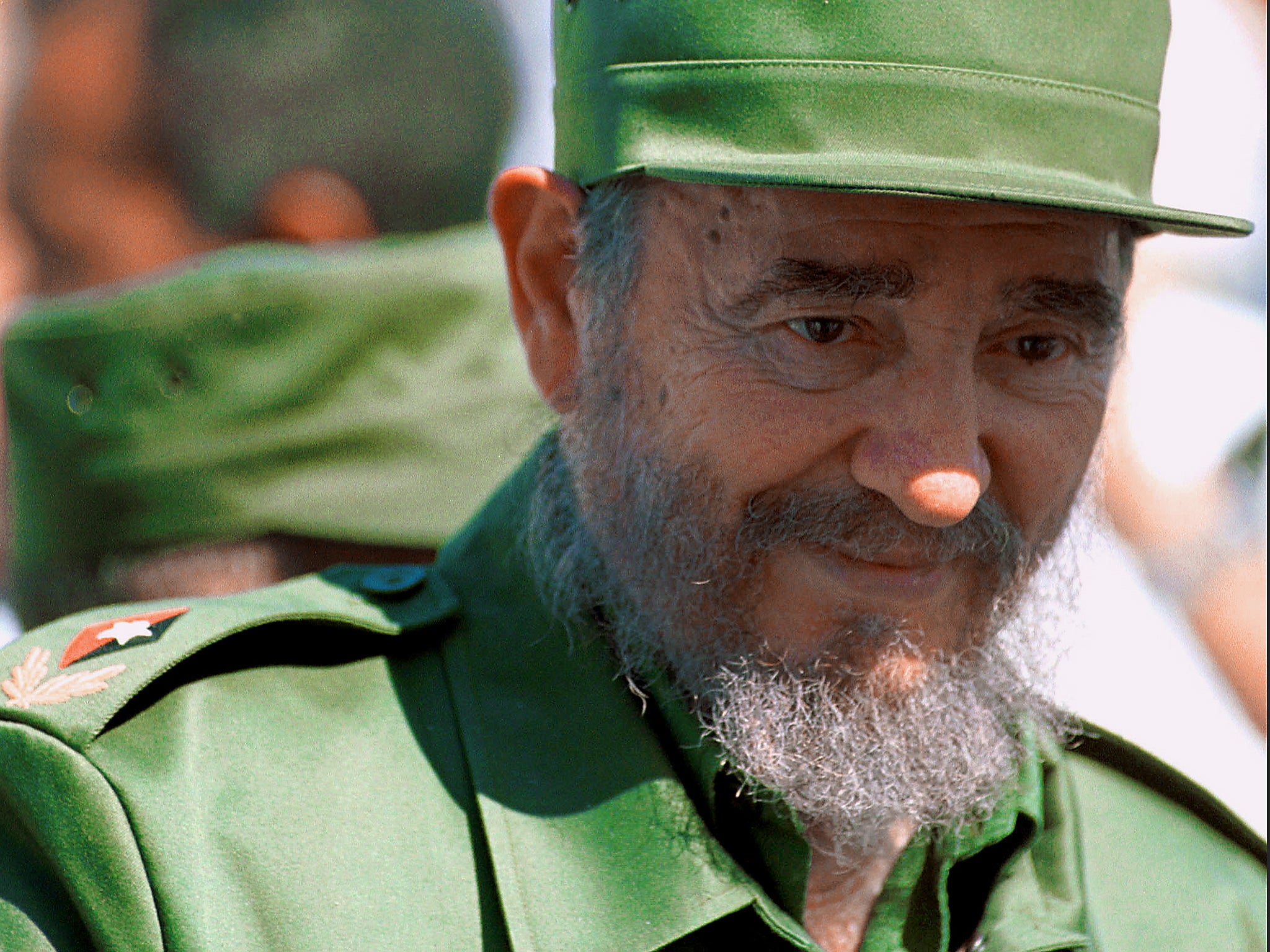The era of the socialist experiment is over – but the nostalgia surrounding it is growing
Cuba was already changing before Castro’s death. The transfer of power to his brother eight years ago brought shorter speeches and tentative market reforms


Your support helps us to tell the story
From reproductive rights to climate change to Big Tech, The Independent is on the ground when the story is developing. Whether it's investigating the financials of Elon Musk's pro-Trump PAC or producing our latest documentary, 'The A Word', which shines a light on the American women fighting for reproductive rights, we know how important it is to parse out the facts from the messaging.
At such a critical moment in US history, we need reporters on the ground. Your donation allows us to keep sending journalists to speak to both sides of the story.
The Independent is trusted by Americans across the entire political spectrum. And unlike many other quality news outlets, we choose not to lock Americans out of our reporting and analysis with paywalls. We believe quality journalism should be available to everyone, paid for by those who can afford it.
Your support makes all the difference.From the fall of the Berlin Wall to the collapse of the Soviet Union we journalist first-drafters of history have rushed to declare the end of an era. But the news to which Europe awoke this morning – the death of Fidel Castro, Il Comandante of Cuba – marked for me the point at which the social experiment carried out under the banner of Marxism-Leninism was definitively consigned to the past.
You can object that China and Vietnam still have one-party communist systems. You can regard North Korea, which calls itself the Democratic People’s Republic, as still hanging on. But the extent to which any of these still even aspired to the ideals of socialist revolution is doubtful. The Cuban revolution was a classic – as was its leader with his beard and fatigues, as was the brand of socialism that he rapidly imposed.
From the victory of the Bolsheviks in 1917 to the death of Castro just months short of 100 years later, the age of communist revolution is now neatly bookended.
Cuba, of course, was already changing. It had survived the demise of the Soviet Union by dint of the stoical acceptance of hardship typical of beleaguered revolutions. The transfer of power to Raul Castro eight years ago brought new official portraits, shorter speeches, and some tentative market-orientated reforms. President Obama’s decision to re-establish relations with Cuba after mediation by the Vatican eased travel and improved the atmosphere. But the dramatic transformation some expected from each of these developments did not happen. Does change of this order just take time, or was the revolution not over until the passing of Fidel?
Most of the international appraisals of Castro’s Cuba seize on the missile crisis of 1962. This is when a confluence of circumstances – a new, young, US President (JFK), a rough-hewn Soviet leader (Khrushchev), a potential martyr for his revolution (Castro), and elements of brinkmanship from the military on both sides – brought the world probably the closest it has so far come to nuclear war.
But let me add two examples of how Cuba even in recent years has remained an awkward diplomatic bedfellow not just to its one-time greatest adversary, the United States, but to its one-time champions in Moscow.
In 1999, I was based in the US, when the saga of “little Elian” dominated the airwaves. Elian was a six-year-old boy who was rescued from the water after his mother had drowned trying to reach Florida. By a strange coincidence, Castro died on the actual anniversary. Elian was taken in by an uncle and his family, part of the fiercely anti-Castro exile community in Miami’s Little Havana. It turned out, though, that Elian had a father, a Castro stalwart, who wanted him back.
There followed an extraordinary stand-off, during which his Miami family opened their garden to the media to show how blissfully Elian was settling into life in “freedom”, while the Clinton administration had to decide his fate. Al Gore was starting his presidential run and desperately needed the Florida vote – though quite how much was less evident at the time.
The following April, after Bill Clinton’s direct intervention, the child was forcibly snatched by the authorities and returned to his father. The case split American opinion and Clinton’s decision became an additional source of resentment for Cuban exiles. But this flicker of humanity may also have been an early stage in what became Obama’s rapprochement. Could it be that Donald Trump, businessman turned politician, is perhaps the perfect president to continue that work?
The second example is from now. After learning of Castro’s death on the morning news, I switched out of curiosity to the Russian international TV channel, RT. In most respects there was little difference from the Western coverage: the same archive footage, the same conflicting assessments as between hero and villain, something of the same ambivalence as between the social safety net enjoyed by Cubans and the shortages in the shops. One question, however, stood out. Was there, several interviewees were asked, perhaps a new nostalgia in the West for something like the Cuban model, given the showing of Bernie Sanders in the US primaries – and, she might have added, the rise of Jeremy Corbyn in the UK?
This proposition was generally rejected. The times were different, everyone said. For a Russian presenter even to pose the question, though, suggested that, while the era of Marxist-Leninist revolution may be over, a little of the romance will live on.
Join our commenting forum
Join thought-provoking conversations, follow other Independent readers and see their replies
Comments